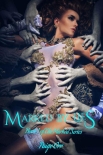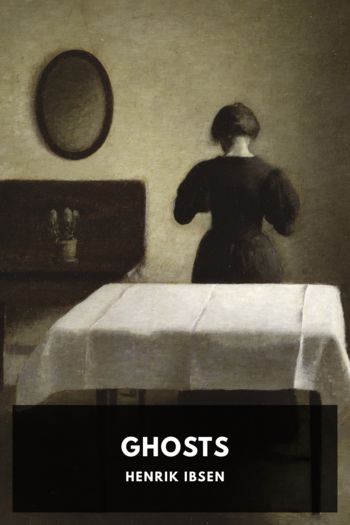Murderous David Hickson (best thriller novels of all time TXT) 📖

- Author: David Hickson
Book online «Murderous David Hickson (best thriller novels of all time TXT) 📖». Author David Hickson
“Of course I know that, Father,” she said. “I would never suggest that you have a closed mind.” Khanyi turned her smile onto me and managed to keep it from turning sour. “Have you been reading history books, Gabriel? How did you know where the town got its name?”
“It was in all the papers,” I said, and refrained from rising to the history book challenge. It was rumoured that Khanyi read history books for the joy of it, and she thoroughly enjoyed the opportunity to flaunt her knowledge.
“It could also mean ‘a little hope’,” said Fehrson. “They had been struggling through the Karoo, which is just about a desert, and with the river here and that hill … Is it a hill or a mountain? At any rate, it was a place that gave them a little hope, perhaps.” He gazed beyond the troubled youths and over the thatched roofs of the historic buildings to where the hill in question was being squeezed by the winter rain clouds. He frowned as if trying to remember at what point a hill became a mountain.
The rain was coming down in great swathes that obscured the road ahead and drummed constantly on the roof of the military jeep as we drove back to the airfield. Khanyi sat in the front beside the soldier driving and was the first to see the beacons.
“Roadblock,” she announced, and the driver grunted in confirmation and geared down. Miserable looking soldiers drifted past the windows of the jeep, waving their glowing red beacons. A hundred metres ahead of us, a mobile command centre crouched on the muddy strip beside the road. A rectangular cube in steel and aluminium, its lights on because of the gloom, the halogen floodlights on each corner adjusted to light up the road. Two soldiers in clear plastic raincoats were adjusting the level on one of the corner struts which had subsided into the mud. Beyond the handful of cars held up in the queue, the motorised cab that had transported the box pulled out into the road and disappeared into the haze.
“That was quick,” said Khanyi.
“They were setting up when we drove in,” said our driver, lest Khanyi find his colleagues more deserving of praise than him. “Only takes forty minutes.”
“Damn nuisance,” said Fehrson. “Can’t you flash your lights and drive through? We are in a military vehicle, after all.”
The soldier looked at Fehrson by means of the rear-view mirror.
“No sir,” he said, and watched to see whether Fehrson had any other treasonous comments to make. Fehrson sighed but closed his mouth and reached into his tweed jacket for his identity card.
These mobile roadblocks had become a constant irritation in the weeks since the national State of Emergency had been declared. Rising tensions in the country, the Johannesburg Park Station bombing incident in which two people were killed, and the riots in Gugulethu township which had seen two soldiers injured had motivated the government to declare the first State of Emergency for over thirty years. The previous occasion the country had been placed under military control had been at the height of the civil unrest in the apartheid years, before my time. Our life continued much as it had before the declaration of the State of Emergency, but these roadblocks which sprouted like sudden alien invasions, and the impromptu patrols of armed troops were a constant reminder that we were tiptoeing across a very thin layer of ice.
“For goodness’ sake, Ben, this is not a card game.” Fehrson watched in horror as I selected an appropriate identity card and returned the others to an inside pocket of my camera jacket. “What on earth are you doing with those? You know it is illegal?”
“I hadn’t realised.”
“Hadn’t realised?” Fehrson spluttered. He looked to Khanyi for support in dealing with my delinquency.
“You’ll have to use the real one, Gabriel,” she said as we rolled forward to pole position. “The flight plan had our names on it; it will only cause trouble if you give them a fake ID.”
I handed her a different card, and Fehrson gave a disparaging sniff. Our driver handed over the IDs. The soldier who received them was a dripping wet blur under his plastic cover. He took the cards and shone a torch into the car to compare the pictures with the flesh versions. The torch lingered on each of our faces, a little longer on Khanyi, probably because of her striking beauty, and a little longer on me, probably because of my inherently untrustworthy face. Rain dripped in through the driver’s window and started soaking into the shoulder of his uniform, but he took it with stoicism and kept his head back so that his comrade could do his work. There were stories of civilians pulled from their cars and locked up for twenty-four hours for the crime of incivility at a roadblock. Even the story of a father taken away from his two children and held for eight hours while the children sat terrified in the back of the abandoned car, although I suspected that was an urban myth. The soldier moved back and gestured to Fehrson to wind down his window.
“What now?” said Fehrson, who always had people do things like open windows for him, and had no idea how to do it for himself. Our driver obliged, and the torchlight settled on my face again for a better look.
“Gabriel?” said the soldier.
“Like the angel,” I said. “The Archangel Gabriel.”
The soldier held the torch on my face for a few seconds, then moved away from our car and disappeared into the cold light of the interior of the metal box. He had taken our





Comments (0)